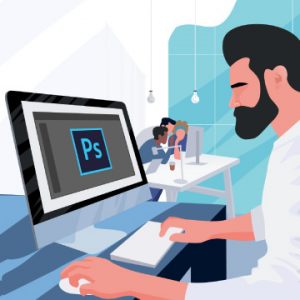Deadlegs wrote:
What are photo retouchers, color correction professionals using for scanning colour and b&w photographs? What are the minimum resolution, bit depth and optical density values I should be looking for when purcahing a new scanner?
As mentioned in a previous post I do not necessarily need film or slide scanning as I already posess a CanoScan FS4000 US.
I am drawn to the Epson 4990 Hi Res Photo, as the Epson 1912 is a litlle out of
reach but it does come with the full verison of Silverfast Ai. Any advice will be appreciated.
Peter
You probably don’t need as much scanner as you think you do. You might be surprised to find out how little information is in most prints. 300 dpi and 8 bit is probably all you really need.
I’ve been collecting and scanning our old family pictures for a number of years. Some of these are old Kodachrome and older slides that I’ve been scanning with my Minolta film scanner. However, I have plenty of old B&W (and some color) prints that I’ve been scanning in. I currently use my CanoScan LiDE 30.
Most people would say that scanner isn’t nearly enough. It certainly isn’t very fast, but I’m now only doing a few at a time. It will do 600 dpi optical scanning.
In my own testing, most prints only have about 300 dpi of information in them. I’ve scanned at 600 dpi, but when I’ve looked closely at the actual picture detail, there isn’t any more. When I use Photoshop to go from 600 dpi down to 300 dpi, it looks exactly the same as the picture scanned at 300 dpi.
Most of the old prints that I’m scanning don’t have nearly the dynamic range that my scanner will scan. I do like to scan into Photoshop at 16 bit, but that is more to preserve everything during the editing process. The final image goes back to 8 bit.
The only reason you would need more scanner is for film or speed. If you need to scan film, nothing beats a film scanner. Of course, you are setup for that already.
If you are doing large batches of scanning, a fast scanner and/or one that has the ability to auto feed will be a real blessing. However, in flatbed scanners, those features are on much more expensive equipment.
Just to let you know, I do use Vuescan software to get the most out of my scanners. That does help. I know that I’m using everything the scanner will give me. Besides, Vuescan is a damn fine piece of software; I wouldn’t be without it.
So, you might want to try work with a less expensive scanner before you spend a lot of money on a flatbed scanner. Mine was a refurb unit that only cost me $40. That’s a great deal and I haven’t proven to myself that I need any more than that. Heck, for that kind of money you can call the whole things an experiment.
Clyde

